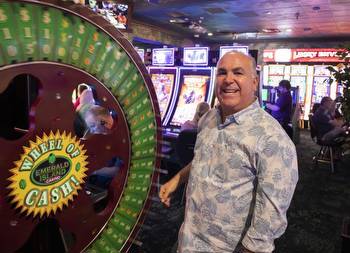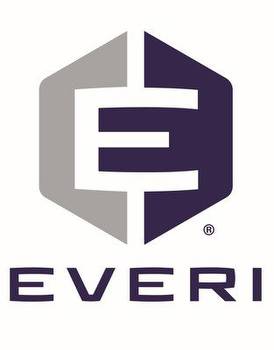Through data analysis, Vegas tech company aims to give casinos a leg up in marketing
Growing up in Las Vegas, Brooke Fiumara was always around the gaming industry.
After graduating from UNLV, she went to work for Station Casinos for nearly a decade, and eventually was in charge of marketing for the Red Rock and Green Valley Ranch resorts.
Today, Fiumara is still helping casinos with their marketing efforts through a product her company created that analyzes consumer trends. Along with Tom Rafferty, another gaming industry veteran, Fiumara founded a small Las Vegas-based tech firm called OPTX in 2019.
OPTX works with the casino operators to access data on customer consumption — such as how often visitors use a certain video poker machine or the restaurants they dine in — and then gives recommendations to the property on where and how they target their marketing efforts.
“With a tool like OPTX, we don’t just look at the data that exists within the walls of a casino, we also ingest the data from online gaming and social gaming platforms,” Fiumara said. “We create a truly 360 view of a customer that allows for a singular view of the property and the player.”
So, if a customer has had a lot of steak dinners at a restaurant inside the property, OPTX’s formula will recommend how frequently the resort should market steak dinners to that customer. It’s the data casinos have from a customer’s rewards card.
The idea is that casinos track a lot of data on people, but they don’t necessarily know how to turn that data into concrete marketing efforts that can pay off.
“Very few (casinos) are bringing that data together and even fewer are operationalizing that data,” Rafferty said. “We don’t just bring the data in and give you a view of it, we actually utilize artificial intelligence and advanced data analytics to generate recommendations to a property.”
Recommendations could include anything from a specific offer for a customer to the placement of a slot machine on a casino floor.
Some bigger casino companies might handle most of their data needs in house, but the growth of the gaming industry has provided many opportunities for OPTX to grow with it, Rafferty said.
OPTX does business with a number of casinos across the country, including Hard Rock locations in Iowa and Northern Nevada, and Inn of the Mountain Gods in Mescalero, N.M.
Hard Rock Lake Tahoe is the company’s only client in Nevada, but OPTX hopes to grow its footprint in Southern Nevada.
Rafferty, a trained patent lawyer, is a former deputy general counsel for gaming maker Scientific Games and also worked for FIS, a Florida-based financial tech company that does business around the world. He moved to Las Vegas in 2014.
Rafferty said the gaming industry has a reputation for “slow adoption” of technological advances.
“What we’ve seen is that this is the perfect time for a product like ours, which is not new in other industries, but is relatively new for gaming,” Rafferty said. “We’ve found the demand for our product to be fantastic.”
OPTX has exceeded by 150% the number of customers it had expected to sign up by the end of this year, he said.
A small group of engineers and other employees work for OPTX out of a small office on the southwest side of the Las Vegas Valley.
Fiumara said the company is looking for a bigger space. It also has a small presence in India and sales professionals on both U.S. coasts.
Fiumara said the pandemic has served as an industry-wide “reset” for the gaming industry, which may have helped a company like OPTX.
“Operators have used COVID-19 as a way to really evaluate their strategies and look at their loyalty programs and marketing strategies,” she said. “We’ve been able to approach companies with a solution that helps them market in this new world.”
Rafferty said OPTX has no ceiling for growth.
“It’s a more confusing time than ever for operators to understand what’s growing revenue and how to grow revenues over time,” he said. “The only way to do that is by looking into the data. Things are going relatively well now for most places and they’re going to want to sustain that.”
































